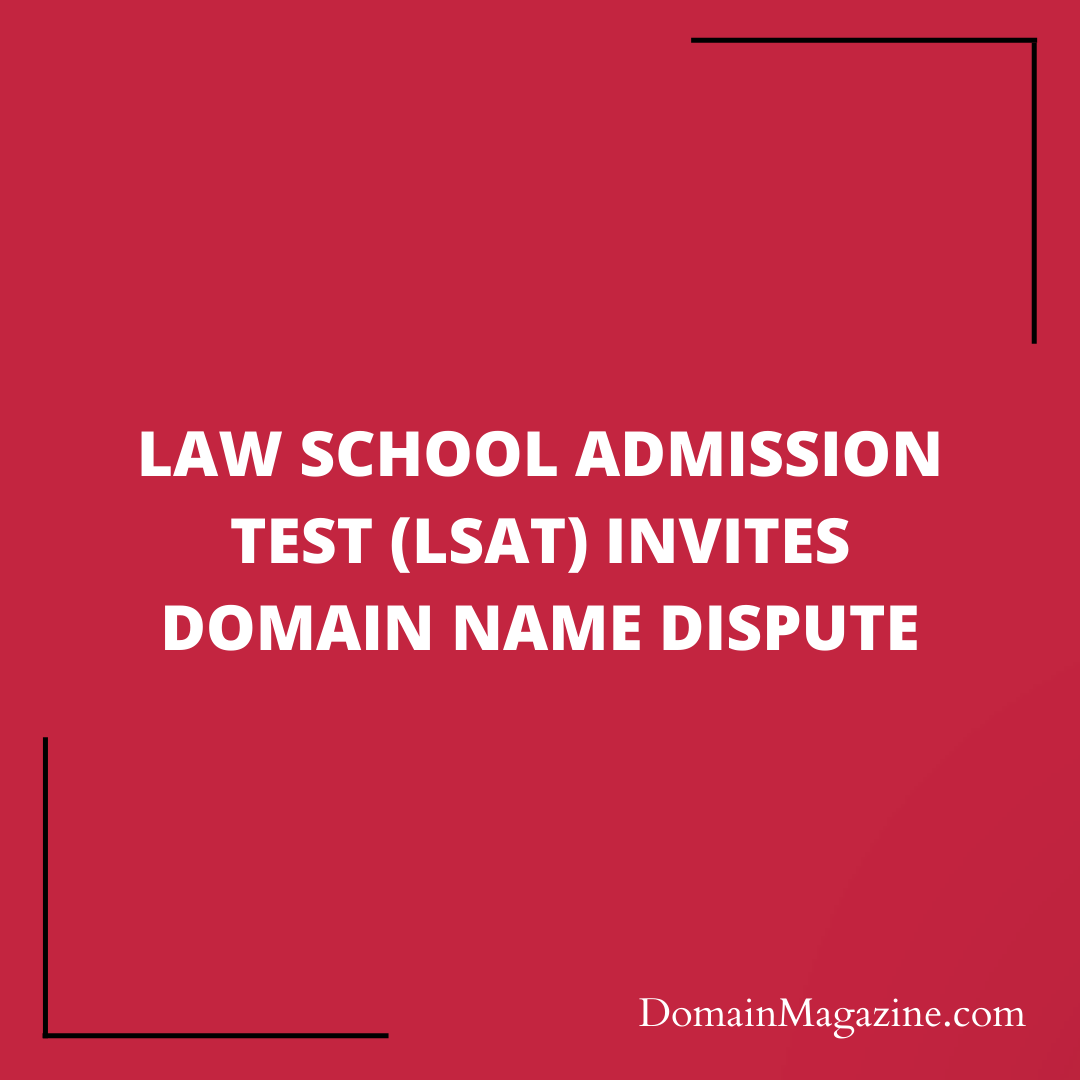In the ever-evolving world of online domains and trademarks, a recent case has brought into focus the clash between intellectual property rights and the freedom to use one’s own name for a legitimate business. In the spotlight is LSATbyFisch.com, a domain name that has stirred up quite the legal storm. Join us as we delve into the details of this intriguing dispute and the panel’s ultimate decision.

Background:
The stage is set with the Complainant, a not-for-profit organization that has been in the business of aiding law school aspirants through the LSAT (Law School Admission Test) since as far back as 1948. They hold the rights to the LSAT mark, having secured registration with the USPTO on January 10, 1978. On the other side of the ring stands the Respondent, who has been using the domain name LSATbyFisch.com since 2008. This domain reflects the name under which he promotes his LSAT test preparation services, known locally by law schools in the New York area. Interestingly, the Respondent has had interactions with the Complainant since 2008, encouraging his students to purchase materials from them.
Key Facts:
- The Complainant alleges that LSATbyFisch.com is being used to deceive consumers into thinking it’s affiliated with the Complainant for the promotion of unauthorized or counterfeit LSAT products.
- The Respondent argues that he has legitimate rights to the domain name, claiming that it describes the LSAT test preparation services he offers under his name “Fisch.”
- The Respondent maintains that his use of the domain name is nominative fair use and not intended to confuse consumers.
- The Complainant suggests that the Respondent is trying to hinder him from teaching LSAT courses without paying a licensing fee, an allegation of market power misuse.
Panel’s Decision:
The panel, consisting of Mr. Nicholas J.T. Smith (Chair), Mr. Jeffrey J. Neuman, and Mr. Michael A. Albert, carefully weighed the evidence presented.
- The Panel acknowledged that the Respondent has been operating an independent LSAT test preparation service under the name LSAT by Fisch since 2008, and the content on his website supports this claim.
- They concluded that the doctrine of nominative fair use applies in this case, considering that the Respondent’s business genuinely revolves around the Complainant’s LSAT.
- The Panel found that the Respondent is making a bona fide offering of goods and services at the domain name and is not seeking to pass off as the Complainant.
- There was no evidence that the Respondent was trying to take unfair advantage of the LSAT Mark beyond a truthful description of his services.
Conclusion:
In this domain name dispute, the Panel’s decision favored the Respondent, allowing him to retain LSATbyFisch.com. This case highlights the importance of considering nominative fair use when assessing disputes involving trademarked domain names. It also serves as a reminder that the mere use of a trademark in a domain name does not necessarily imply malicious intent. As the digital landscape continues to evolve, such cases will play a crucial role in shaping the boundaries of intellectual property rights in the online world.
Read the full article here: https://www.adrforum.com/domaindecisions/2054973.htm


Join the Discussion